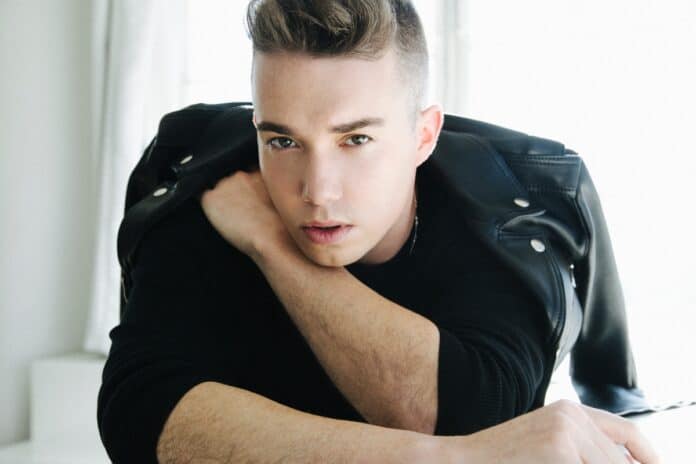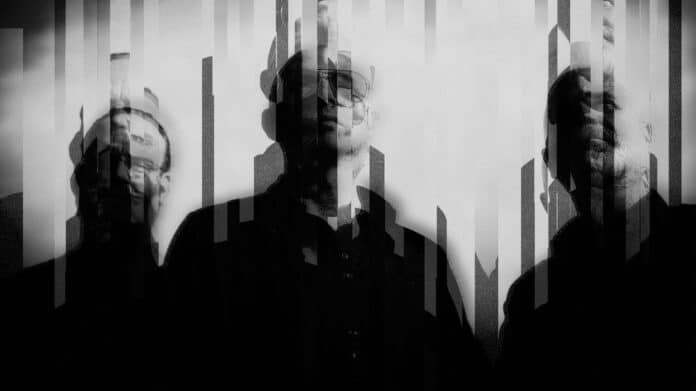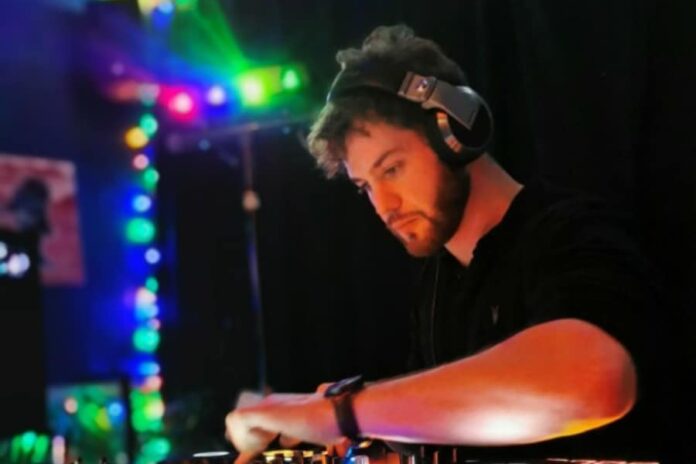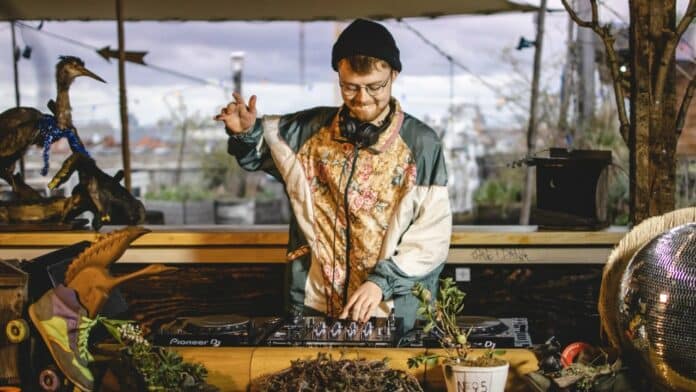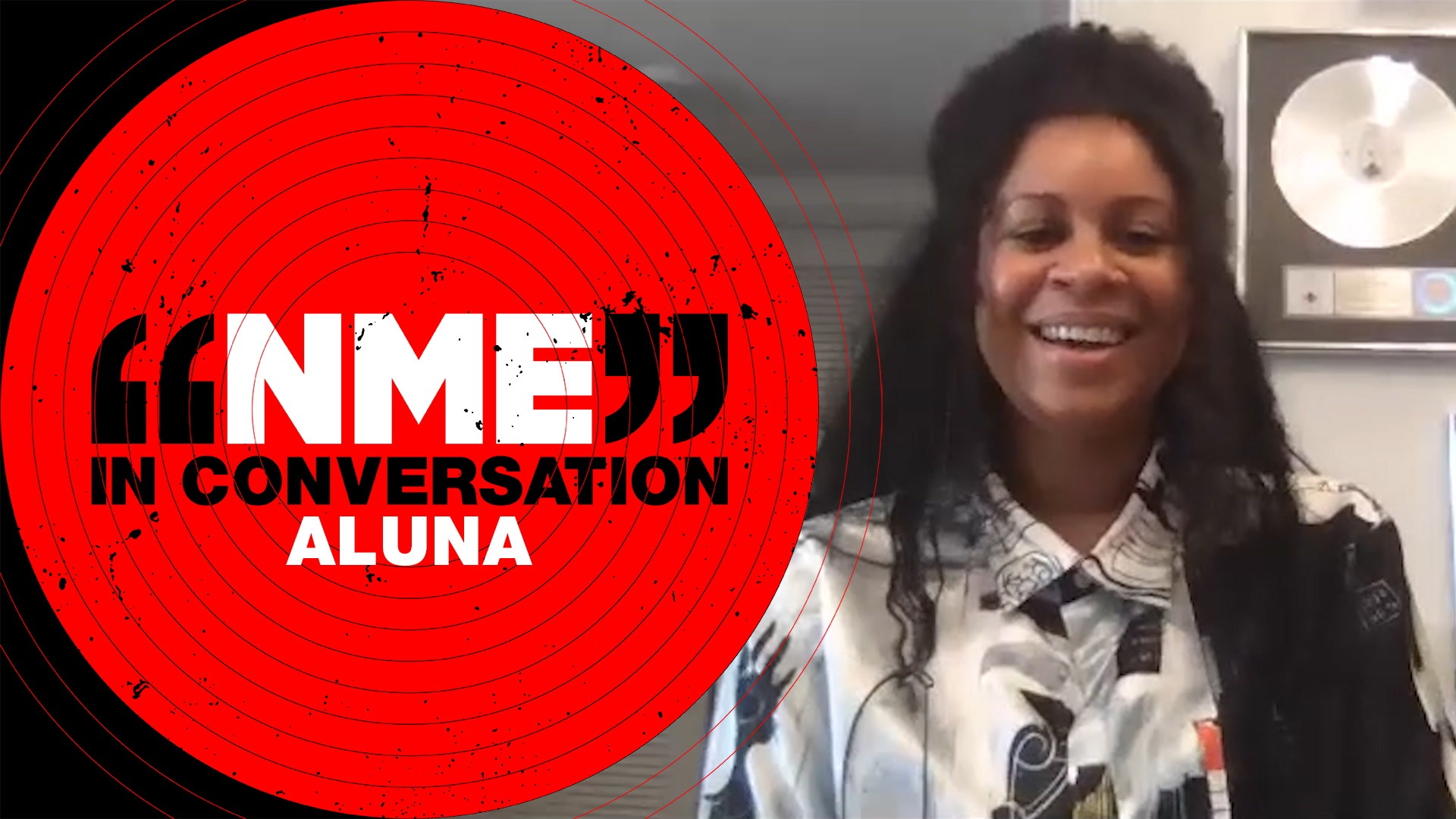
In Conversation with Aluna: “There were certain things I couldn’t express as part of a duo”
On the surface, Aluna’s banging debut solo album ‘Renaissance’ is packed from top to bottom with euphoric dancefloor moments. It features artists including Kaytranada, SG Lewis and Princess Nokia, and it’s all too easy to get lost in the hypnotic basslines and entrancing synths spilling from every corner of the record. Underneath all of that, however, is a collection of songs that blur the boundaries between culture, race, gender and genre to represent the cultural heritage and identity of its creator. Best known as part of the electro duo AlunaGeorge with collaborator George Reid, she’s stepped out alone with style.
For the latest in NME’s In Conversation video series, we jumped on Zoom with Aluna to discuss her decision to go it alone, motherhood and the powerful meaning behind ‘Renaissance’. Watch the full video above.
Why did now feel like the right time to go it alone?
“There were certain things, purely from a selfish perspective, that I wasn’t able to express as part of a duo. I could feel that I was starting to do that within AlunaGeorge, and it didn’t feel completely natural. I couldn’t just go for it. I just wanted to make sure that the things I’m doing are because I want to, not because I’m scared to not do something or I’m [too] comfortable doing something else.”
How did you find the creative process?
“Music is a collaborative art form, but when you’re in a duo you’re more diplomatic about who gets the final say. I had the final say on every single aspect; it was such good fun. I knew exactly what I wanted, how to explain it [and] how to get it. Turns out it was quite a good idea because the album I have at the end of it really explores my whole cultural heritage and upbringing, and all the different sounds I was listening to as a kid.”
The album is called ‘Renaissance’. What was the inspiration behind it?
“I was seeing individual people and Black people across different mediums do things for themselves that go against the status quo. I was impressed by it, because it takes a certain amount of energy to just go and do what you want to do even though people will judge you for it. That was really inspiring to see, [so I decided] to have my own renaissance.”
The recent Black Lives Matter movement has brought issues like these to the forefront of everyone’s minds. Does it feel like the album’s message has taken on a new meaning?
“I can never thank George Floyd for the effect he’s had on the world, but I am grateful for the movement that happened in the wake of his death. I’ve never had conversations in the media, with my friends and artists I work with on the level I’ve been having, and it means everything to me. I think a lot of people who followed my career would say that they liked the music but they don’t really necessarily get who I am, or identify with me in any particularly strong sense, and it’s basically because I’m the sort of person that doesn’t talk to people about things they’re not interested in.
“I was always happy to talk about music, but on a personal level talking about things that I care about was not really on the table. Especially growing up in England the conversations around race are… the first thing you have to do is argue that racism exists, and if that’s the first thing you have to do in a conversation, you’re not going to get very far. So being able to talk about all of these things is everything to my career. I’m so grateful to be making the music I make, but to be a real person in public that has opinions and is honest about how she feels is everything. If I was able to pinpoint a high point in my career, it’s right now.”

Did you ever have a moment where you thought that making such a defiant statement with your first solo project was a mistake?
“Absolutely not. I fight my battles with my creativity, and then I accept that there will be certain things that are setbacks. For this album I assumed it would be even more extreme because I’m bringing blackness into dance music. Some people who haven’t been exposed to the back story of the record and are listening to it on face value have said things like: ‘I don’t know what she’s doing mixing R&B with dance music, but it doesn’t work’. I felt like that was going to be the majority viewpoint and it’s not. From my personal perspective, global dance music is the future of dance music. I don’t really see [its] future continuing to be this segregated, monocultured, linear sound. When I go to the club, people want to hear a blend of all these different genres.”
You became a mother during the process of writing and recording the album. How did that impact you as an artist?
“For about a day, I was like: ‘Oh, that’s the end of my career, then!’ But I believe in the ability to choose, and you get to choose what kind of good mum you want to be. I want to be the kind of good mum that shows my kid how putting everything you have into creating something in this world you’re proud of is a great idea… It has been the best thing ever because I’m going to be able to show her that something beautiful can be made out of our cultural heritage [and] that there is harmony that can come out of so many worlds colliding.”
What’s next? Does all this mean that AlunaGeorge is over?
“Me and George have songs already and we’re just on a hiatus, so it really depends on what everyone wants to do next. I don’t think it’ll be long before new music is out — I’m not sure how I’m going to navigate both bands, but AlunaGeorge is still in existence.”

